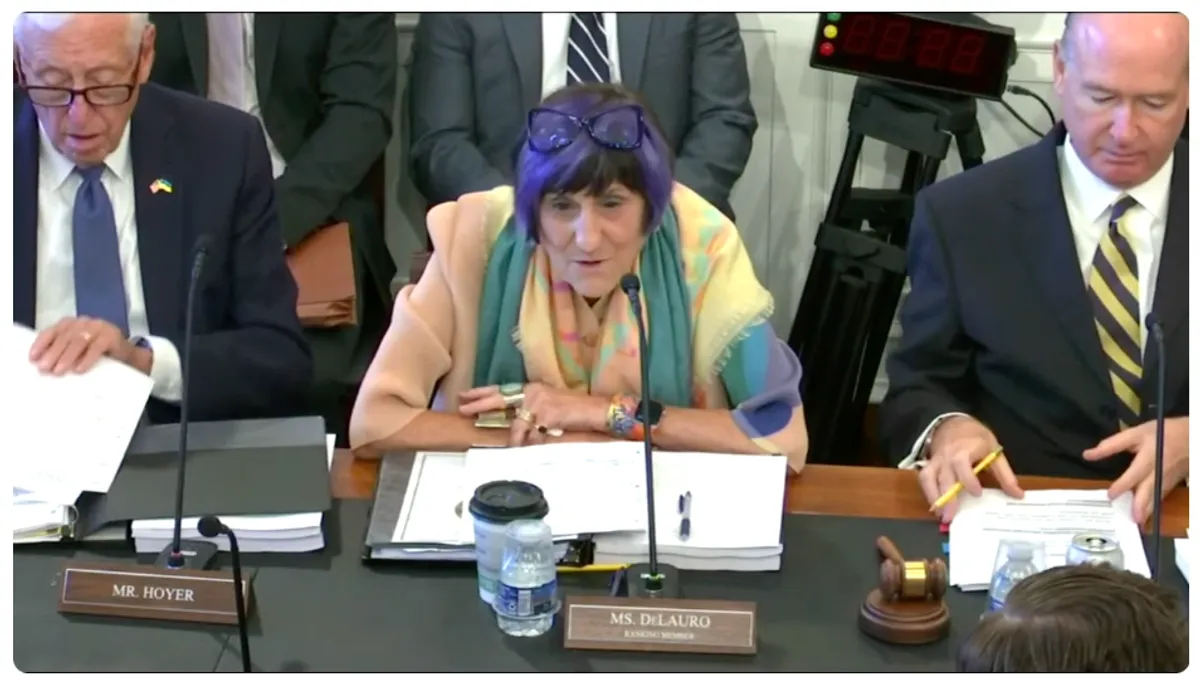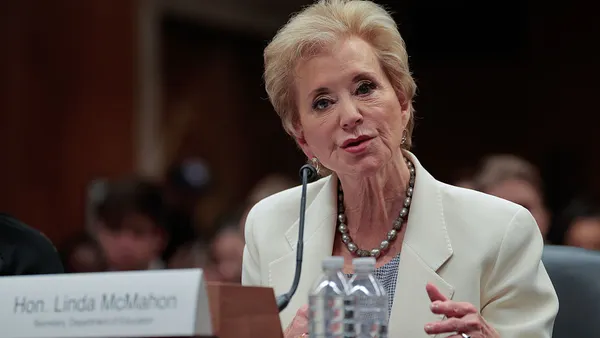Dive Brief:
- Federal education spending would be slashed by 13% — or $11 billion — under a fiscal 2025 bill passed Thursday morning by the Republican-led House education appropriations subcommittee.
- For higher education, the GOP proposal would maintain the maximum Pell award at the current $7,395. Federal student aid programs would see a decrease of $1.1 billion and Federal-Work Study would be cut by $615 million, or about by half, according to the committee Democrats.
- Additionally, the spending plan would prohibit the U.S. Department of Education from using federally appropriated funds to enforce the controversial Title IX rule that includes protections for LGBTQ+ students and employees in K-12 schools and colleges.
Dive Insight:
The House Appropriations Labor, Health and Human Services, Education, and Related Agencies Subcommittee approved without amendment and by voice vote the Republican bill put forth the day before. It will be considered by the full Appropriations Committee at a later date.
The bill recommends $72 billion in discretionary spending for the Education Department, which is $10 billion below President Joe Biden’s budget request.
In an apparent reference to the Title IX rule, subcommittee chair Rep. Robert Aderholt, R-Ala., said the spending plan “protects religious freedom and values by stopping the administration’s regulation that would require schools to allow biological boys to compete against girls in women’s sports programs.”
The Education Department’s Title IX athletics rule is not yet finalized, but the GOP’s proposed spending prohibition would nonetheless cover the forthcoming rule, as well as a 2021 notice that clarifies Title IX enforcement in light of the U.S. Supreme Court’s decision in Bostock v. Clayton County.
Appropriations Committee ranking member Rosa DeLauro, D-Conn., accused Democrats of doubling down on “their already tried, trodden and failed strategy of writing blatantly partisan bills that will never become law.”
Rep. Tom Cole, R-Okla., Appropriations Committee chair, said that while the Republican majority in the House will write bills as conservatively as they can, moving a bill into law is a “journey.”
“It starts here, but it doesn’t end here,” Cole said of the subcommittee’s work. “It’ll bend toward the middle at the end, because you got to get 60 votes in the United States Senate.”
“It’s possible to find agreement here,” he added.
FY 2025 begins Oct. 1 and ends Sept. 30, 2025.
















